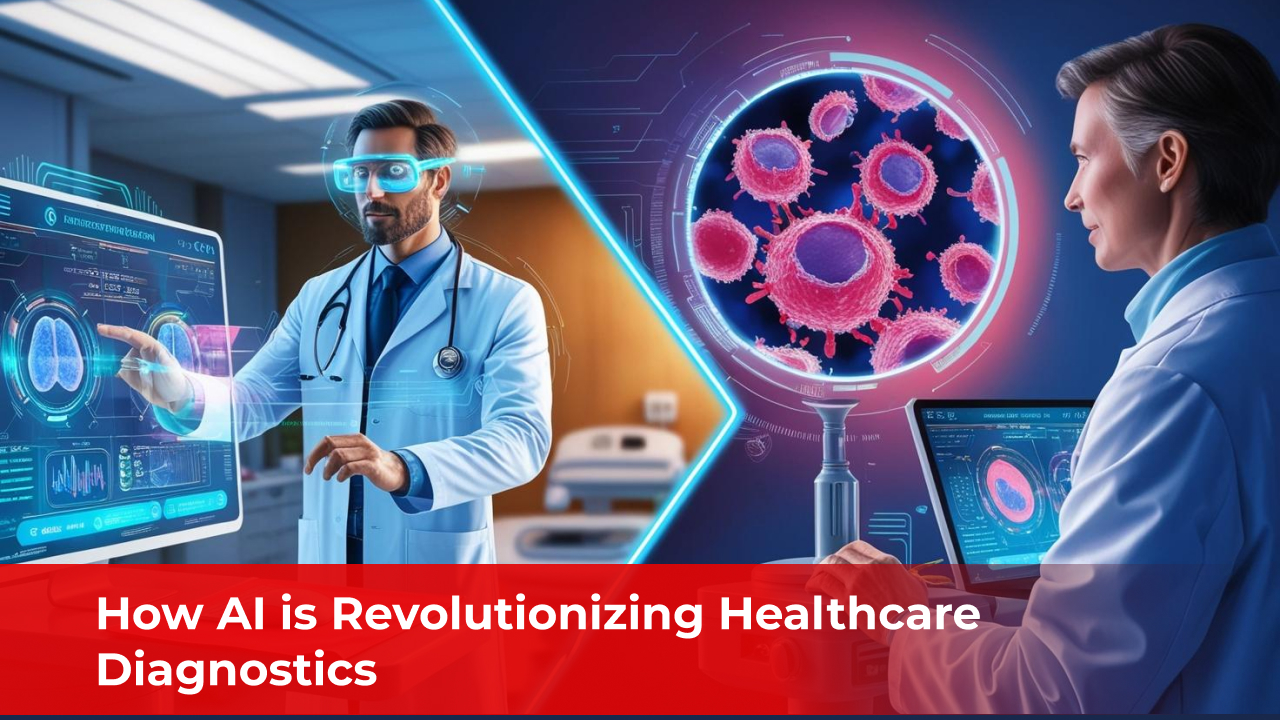Healthcare sectors are indeed complex and challenging because it deals with someones life and almost deciding how they will be going to live through detection of diseases, doing tests and analysing tons of medical related datasets to identify and predict the outcomes, and much more that cause risk of human error but AI and ML have made it all easy and transformed it in revolutionarily. The rapid growth of AI advancements and the integration of AI have potentially improved the care and quality of life. Doctors and health professionals can easily create personalized treatments and offer 24/7 services.

How does AI work in Healthcare?
Healthcare sectors have a massive amount of information, and AI and ML models are trained through various processes. AI can identify patterns to make predictions using complex algorithms and process large datasets. Since healthcare deals with a huge amount of data that includes images, scans, medical records, lab results, genetic information, and medicine and drug information, AI has to work largely on the following key things.
- Identifying patterns and trends in medical data is necessary to find a connection between complex and hidden details that humans might not notice.
- Make a prediction based on the patient's medical history, tests, and reports to find the risk of potential diseases and analyze how different kinds of treatments can be effective to prescribe the best approach. It also significantly helps to predict different consequences of complicated surgeries.
- AI also works in automating repetitive tasks such as scheduling appointments, generating reports, and organizing medical data.
AI Application in Transforming Healthcare
Enhancing Diagnostic Accuracy
In the overall health care sector, AI is capable of enhancing the accuracy in diagnosis and developing better positive treatment plans. Here, AI algorithms analyse Medical images and scans with high precision, where human radiologists fails in detecting abnormalities. For examples, AI can no easily analyze mammograms for the identification of the signs of breast cancer at early stages.
Enhancing Robotic Surgery
Robotic surgery revolutionised the medical field and transformed the surgical process with greater precision. AI-powered robotic surgery has achieved minimising tissue damage with minimal tremors, allowing surgeons to achieve a higher success rate.
Personalizing Treatment Plans
One of the major applications of AI in healthcare diagnostics is personalised treatment plans. Based on the medical history, genetic makeup, and lifestyle factors, proper treatment plans are prepared, including prescribing medication, therapies, and other treatments designed for each individual.
Accelerating Drug Discovery
AI has accelerated the drug discovery process, which was traditionally expensive and slow with the help of broad data analysis and training different models on biological information and chemical compounds information and expedite the development of new medications.
The Benefits of AI for the Healthcare System
- In terms of patients, AI has reduced the time and made the diagnosis faster and more accurate. Chatbots are 24/7 available for health-related support and managing services.
- In terms of the medical profession, AI has been assisting professionals in analysing complex data, minimising the risk of human errors, and allowing them to offer quality care to patients and make critical decisions.
- Regarding Healthcare Systems, AI is helping reduce administrative tasks, streamlining operations through automation, and effectively reducing healthcare costs.
Ethical Considerations for Using AI in Healthcare
Despite the achievements and advancements, the focus has also shifted towards medical ethics and humanity. The Ethical Dilemmas, Privacy and Data Protection, Consent, Social Gaps, Empathy, and Sympathy are various considerations that should be a must.
- Data Privacy: Privacy is paramount anywhere, and it is essential to be careful about the data security measures used by AI systems for diagnosis and treatment to protect patients' sensitive details.
- Algorithmic Bias in AI: You must be familiar with the biased outcomes of AI, which can heavily impact decision-making. Algorithms are trained on particular data sets, which can have biased information, leading to biases in recommendations.
- Human Oversight: AI should be considered a "means to boost human expertise and not substitute it." During critical diagnosis and treatment, human judgment based on experience must be used alongside AI recommendations.
Future of AI in Healthcare
- Personalised Medication: AI will grow and improve its developments, aiming to advise better and more personalised medication or treatment plans by analyzing patients' unique genetic makeup and lifestyle, as well as predicting any future relevant risks.
- Drug Research & Discovery: AI and ML have been used for research and discovery, identifying novel drug targets that were unknown in the past. They also continue to find breakthroughs for the treatment of diseases such as cancer.
- Preventive Healthcare: AI can easily analyse the risk of developing diseases and suggest more preventive measures, allowing early intervention and improving results positively. AI can be trained on vast and reliable datasets for precise identification and decision-making.
- Diagnostic and Monitoring: AI tools show potential in providing more sophisticated, real-time diagnostics and ongoing health monitoring. The best example can be seen in wearable devices like smartwatches, which use AI-powered algorithms to analyze someone's vitals and detect potential health issues in real time.
- Virtual Medical Assistants and Chatbots: Virtual assistants and bots play vital roles in providing 24/7 assistance, patient care, and health support. The future holds a great scope for them in empowering people to actively manage their health information, medication reminders, and basic mental health support.
Challenges of AI in Healthcare
- It is crucial to design rules, such as transparent policies regarding data privacy and bias in AI, for safeness, effectiveness, and righteous use.
- It is essential to understand how the public accepts AI in the healthcare sector and their views on it. Education and spreading awareness about the pros and cons of AI can play a pivotal role in building trust and acceptance, shedding concerns, and responsibly enforcing AI.
- Implementing AI in healthcare requires a significant investment in appropriate infrastructure, including data storage, maintenance of AI systems, and computational power.
Final Thoughts
It is essential to understand that AI can not completely eliminate the human presence in healthcare because, for many significant reasons, one of them is the decision-making on complex medical cases. Still, it does empower humans to improve diagnosis, treatment, and care. AI has shown its potential by offering fast and precise diagnoses, preventive measures, and personalised treatment plans that undoubtedly play an essential role in shaping the future of healthcare.



